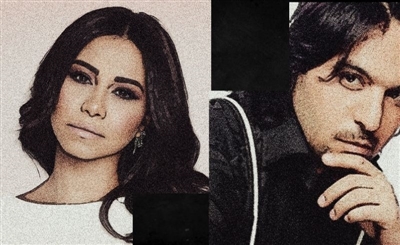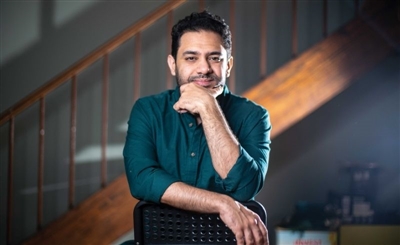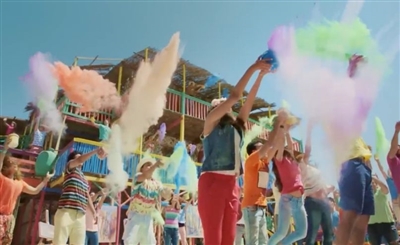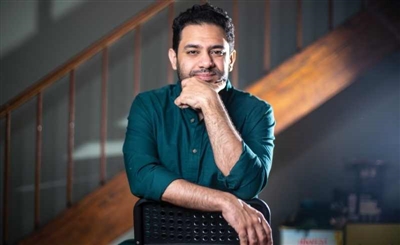Will Egypt’s Metal Scene Ever Be Resurrected?
#SceneNoise guest writer Youssef Fahmy takes a deep dive into Egypt’s mosh pit, and gives his diagnosis on whether or not it can truly be revived.
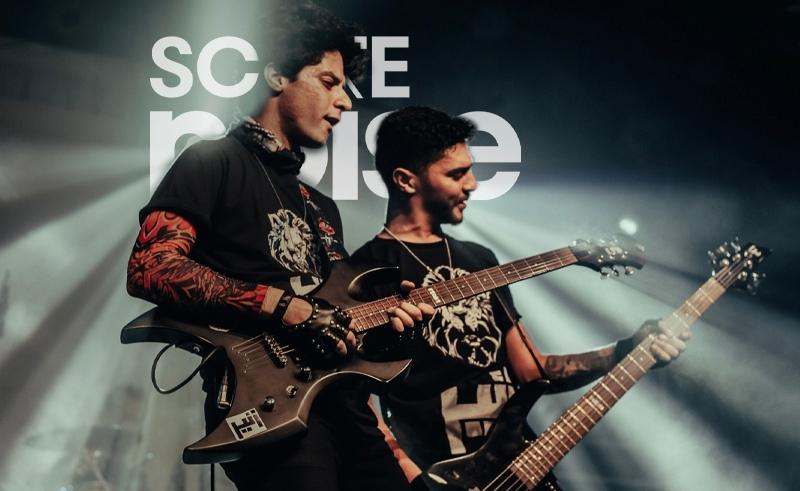
The Egyptian metal scene has always been sidelined to both people and mainstream media especially since metal music and its enthusiasts have been driven out of the light and into hiding, occupying a dark corner of Egypt’s underground music scene. Metal music is an acquired taste; to most, it’s an invasive and violent sound lacking in any artistic or creative input or energy, which is an assumption that is very far away from the truth. Whilst Egyptian metal is often overshadowed by hip-hop, techno, and rock, it is not the niche genre it’s made out to be in Egypt or the MENA region.
The widespread belief that metal is related to satanism and zionism is the product of multiple factors, one of which is the 2006 El-Sawy Culturewheel concert that banned metal bands from performing at most venues. In April of 2006, a group of Egyptian and Lebanese bands were performing at Zamalek’s El-Sawy Culturewheel in Cairo as part of their ‘Rock Mania’ concert. However, the crowd was particularly ‘rowdy’, resulting in a massive mosh pit where several people were injured, and multiple walls in and outside the venue were vandalised.
There are over one hundred metal bands in Egypt. However, if you ask, “How many metal bands have a full album or EP released that is well recorded and produced?”, you would be left easily counting them on your fingers, with some to spare. According to the website Metal Archives, there are around 50 bands in Egypt who have released enough material to be part of their ‘metal encyclopedia’. However, most have vanished into thin air.
Egyptian metal lacks the fundamental collective and supportive foundation that the genre has abroad, and this is not due to the general population’s antagonism towards the metal scene. “What’s truly holding the metal scene back, is the metal scene itself,” Sayed Ragai, lead vocalist and frontman of metal band Erasing Mankind, tells SceneNoise.
The metal scene, especially in Cairo, is plagued by fights and disagreements that have contributed to a distinct lack of space for creativity and innovation. Rather, the spaces we now have are ones where unheard music is competing with similarly unheard music. Fans are not coming to gigs or lending their support online, and merchandise such as CDs and clothes are not being bought by locals . A lot of fans don’t understand the amount of effort being exerted to make this music happen, which makes it difficult for artists. Metal musicians often play in tribute bands just to have some form of visibility.
The Egyptian metal scene, as of right now, is collapsed, despite being the biggest and strongest metal scene in the MENA region. Not to mention that the older generations denounce hip-hop, rap, and other popular music as “not music” or “easy music”, which is purely ironic as metal music was stereotypically viewed as “noise” and “not music” as well. In addition, older generations denounce modern metal as being just worse than the classic, instead of acknowledging its natural evolution as a genre and art form.
The closest comparison to the Egyptian metal scene in terms of local support, networking and musicality would be the one in Tampa, Florida. The late 80s saw the arrival of early death metal from Europe to the US, which was then transformed to encompass a wide range of sub-genres, with dozens of bands to accompany it. The innovation that transformed death metal to be one of the most widely listened to genres of metal was not just musical, but collaborative and supportive.
While the band Cannibal Corpse is considered one of the most brutal bands at that time with the lead singer having a stage name of George ‘Corpsegrinder’ Fisher, Corpsegrinder would speak endlessly in interviews about his love for collecting pet toys, as well as being happily married with two daughters while sharing images in Disneyland. He would go on to listen to many fans’ recordings and albums in the Florida scene for years, and would not partake in pretentious behaviour against upcoming bands. Moreover, most of the Tampa Florida death metal scene can be credited to one very innovative producer, Scott Burns, who was able to revolutionise the sound of metal in the early 90s at a cost-effective rate.
The Egyptian metal scene lacks Corpsegrinder’s social etiquette, as well as a producer similar to Scott Burns, who can revolutionise recording and production and be cooperative and sympathetic to the scene. However, one can argue that a person like Scott Burns is even unnecessary to turn the metal scene on its head. Most of the production nowadays can be done without large investments in equipment; urve and some dedication for proper learning of the technique. In the 1980s, Norwegian black metal artist Burzum notoriously recorded his most infamous album Dunkelheit with a broken guitar pedal and a mic from a cheap headphone. The ultimate production disaster was used innovatively to produce one of the best black metal albums of all time (Just don’t go searching 90s Norwegian Black Metal on Google and you’ll be good).
It wasn’t until this year that CJC 610 introduced their ‘Metal Roar’ nights, which allowed metal performers and fans to reignite their passion for metal live in public. CJC 0610 hosted 3 original metal bands - Groove Metal/Deathcore band Erasing Mankind, German-Egyptian based Blackened Death Metal band Crescent and Alexandrian Deathcore based band Mythos - in an unforgettable night of growling, headbanging, pits and all-in-all hardcore fun.
The event was a huge hit, packed to the max by enthusiastic metal fans in their black shirts and chains piling up in a line to see the gig. The Instagram stories that followed depicted massive deep growls, breakdowns that chilled to the very core, headbanging, group pits and people just having fun. It makes you almost forget the times when Egyptian metal was branded as ‘satanic’ by mass media and culture. “A lot of venues are scared to get metal bands either from fear of branding, or their audience not coming and losing a lot of money in the process. There is some hope, as a lot of bands are now exploring new sounds and video clips are more common,” Regai continues. “Sure, maybe most venues are still afraid, but our event at CJC has left them wanting to do another one soon, which is a big win for us.”
As metal bands make their return, new sounds we all sought for are now more accessible, and this gig at CJC gives us hope of everything to come.
- Previous Article test list 1 noise 2024-03-13
- Next Article NOVO and Issa & Assouad’s Track Featured on Oprah’s 'Queen Sugar'
Trending This Month
-
Feb 20, 2026



